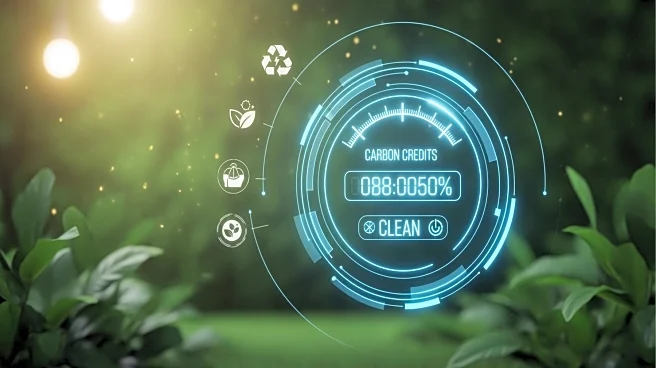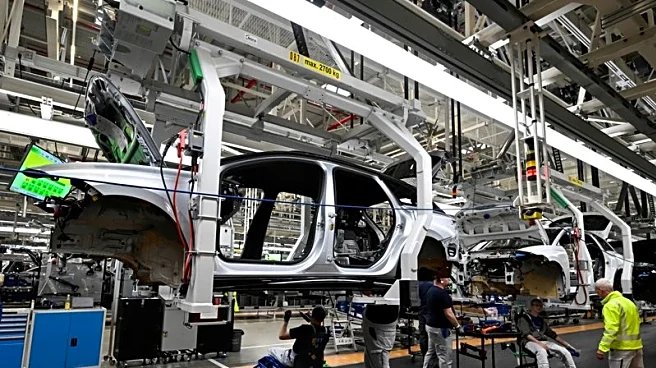What's Happening?
As climate change intensifies, carbon credits have become a significant tool for businesses and governments aiming to manage their carbon emissions. These credits, representing one tonne of carbon dioxide either prevented from entering the atmosphere
or removed from it, are tradeable certificates that validate environmental actions. They are particularly popular in sectors that are challenging to decarbonize, such as aviation. However, the use of carbon credits is not without controversy. Critics argue that they can serve as a license for companies to continue polluting, rather than reducing emissions. Despite these criticisms, carbon credits remain a central component of many companies' sustainability strategies, as they work towards carbon neutrality while developing long-term decarbonization solutions.
Why It's Important?
The use of carbon credits is crucial in the global effort to combat climate change, especially for industries that face significant challenges in reducing emissions. By providing a mechanism to offset emissions, carbon credits can help companies meet regulatory requirements and consumer expectations for sustainability. However, the criticism surrounding their use highlights the need for stringent quality control and transparency to ensure that these credits lead to genuine environmental benefits. The debate over carbon credits underscores the broader challenge of balancing economic growth with environmental responsibility, a key issue for policymakers and businesses alike.














